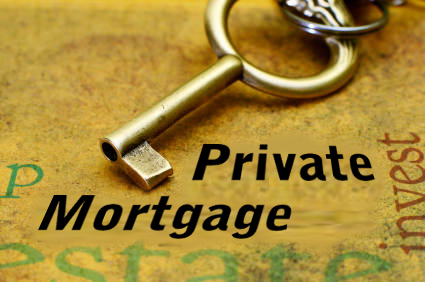How It Works: A Comprehensive Overview to Mortgage Lending for First-Time Buyers
Steering the globe of mortgage lending can be frightening for newbie buyers. Recognizing the basic parts like principal, rate of interest, and down repayments is essential. Furthermore, acknowledging the different sorts of mortgage and the application procedure can considerably influence one's experience. By checking out vital elements that affect passion rates, buyers may uncover useful insights. What else should they think about prior to making such a substantial economic dedication?
Recognizing Mortgage Essentials
When first-time customers go into the domain name of homeownership, recognizing mortgage essentials ends up being vital for making informed choices. A mortgage is fundamentally a car loan protected by the residential or commercial property being bought, enabling people to purchase a home without paying the complete rate upfront. Customers need to understand key components, including principal, rate of interest, tax obligations, and insurance, commonly summarized as PITI. The principal is the amount obtained, while rate of interest is the price of loaning that quantity, revealed as a percent. Tax obligations and insurance policy are additional expenses that can substantially impact monthly repayments. Customers need to also consider the car loan term, normally 15 or three decades, which affects repayment quantities and general interest paid. Recognizing credit scores is vital, as they influence loan qualification and rates of interest. Understanding these essential ideas empowers newbie buyers to navigate the mortgage landscape confidently and make options that align with their monetary goals.
Sorts Of Mortgage Loan
When taking into consideration mortgage choices, newbie purchasers typically come across two primary kinds: fixed-rate and variable-rate mortgages. Fixed-rate mortgages provide security with regular repayments over the funding's term, while adjustable-rate mortgages can offer reduced first rates that might vary with time. Recognizing these distinctions is necessary for making a notified decision.
Fixed-Rate Home loans
Fixed-rate home mortgages provide stability and predictability for novice property buyers navigating the complexities of home financing. With a fixed-rate mortgage, the rate of interest continues to be continuous throughout the car loan term, usually varying from 15 to 30 years. This consistent price allows buyers to intend their spending plans efficiently, understanding that their regular monthly repayments will not vary. Newbie customers benefit from this framework as it gets rid of uncertainty in long-lasting monetary commitments. In addition, fixed-rate mortgages often come with lower first prices compared to adjustable-rate options, making them an eye-catching option for those wanting to establish home equity gradually. Overall, fixed-rate home mortgages offer an uncomplicated path to homeownership, ideal for individuals seeking long-lasting financial security.
Adjustable-Rate Mortgages
For newbie homebuyers seeking adaptability, variable-rate mortgages (ARMs) can give an enticing alternative to fixed-rate finances. ARMs commonly use lower first rates of interest, making monthly settlements extra budget friendly in the very early years. Nevertheless, these rates vary after a preliminary fixed period, which can cause raised repayments in time. Consumers should recognize the index and margin that determine future price changes. Typically, ARMs have adjustment periods of one, 3, or five years, with routine caps to limit just how much prices can boost at each change. While ARMs can be beneficial for those intending to sell or refinance before the price readjusts, they also carry dangers if market conditions transform considerably. Detailed research is vital for notified decision-making.
The Mortgage Application Process

Secret Aspects Influencing Rates Of Interest

Deposits and Closing Costs
Recognizing deposits and closing expenses is important for novice homebuyers, as these expenses substantially affect the overall affordability of a home loan. A down settlement is the first amount paid towards the home's acquisition price, normally shared as a percentage. It can vary from as reduced as 3% to 20% or even more, relying on the finance type and loan provider needs. A bigger down payment can minimize monthly mortgage settlements and get rid of private mortgage insurance policy (PMI), which secures lenders in case of default.Closing costs, on the other hand, incorporate numerous costs sustained throughout the home-buying process. These may consist of car loan source charges, evaluation costs, title look at more info insurance policy, and attorney costs, generally amounting to 2% to 5% of the home's acquisition price. First-time buyers ought to budget for both down settlements and closing prices to assure they can secure their mortgage and successfully navigate the home-buying process.
Tips for First-Time Homebuyers
What necessary pointers can first-time buyers follow to browse the often challenging procedure of buying a home? First, establishing a sensible budget is crucial. Buyers ought to examine their economic scenario, including revenue, costs, and prospective mortgage settlements. Next, getting pre-approval for a home mortgage can provide clarity on what one can pay for and reinforce their placement when making an offer.Researching communities is just as vital; purchasers should think about aspects such as services, schools, and future advancements. Additionally, it is advisable to function with a certified real estate agent who can supply beneficial understandings and advice throughout the purchasing process.Home evaluations need to not be neglected, as they can reveal concealed issues that may influence lasting complete satisfaction. Customers must stay patient and adaptable, understanding that discovering the right home might take time. By following these tips, new buyers can come close to the market with self-confidence and understanding.
Regularly Asked Inquiries
What Papers Are Needed for Mortgage Pre-Approval?
For mortgage pre-approval, people normally require to provide revenue confirmation, work history, credit rating records, tax obligation returns, financial institution statements, and information of any financial obligations (Private Mortgage Lenders Savannah GA). These files assist loan providers examine financial ability and identify financing qualification
Can I Get a Home Mortgage With Bad Credit Score?

Numerous lenders consider candidates with negative credit rating, though terms might differ. Greater rates of interest or larger deposits could be needed. Exploring alternatives with specialized loan providers or government programs can additionally improve opportunities for authorization.
How Lengthy Does the Mortgage Approval Process Take?
The mortgage approval procedure normally takes in between 30 to 45 days. Elements influencing this timeline include the lending institution's efficiency, the borrower's financial documents, and the complexity of the lending application. Delays might take place due to additional requirements.
What Takes place if I Miss a Mortgage Payment?
If a mortgage settlement is missed out on, late costs may be incurred, and credit report can endure. Prolonged non-payment may bring about foreclosure procedures, triggering the loan provider to redeem the property after a series of cautions.
Can I Refinance My Mortgage Later On?
Refinancing a home mortgage later on is frequently possible, enabling property owners to change their lending terms, passion rates, or regular monthly settlements. Nevertheless, eligibility depends on credit rating, existing market conditions, and the existing mortgage's terms. Private Mortgage Lenders Savannah GA.